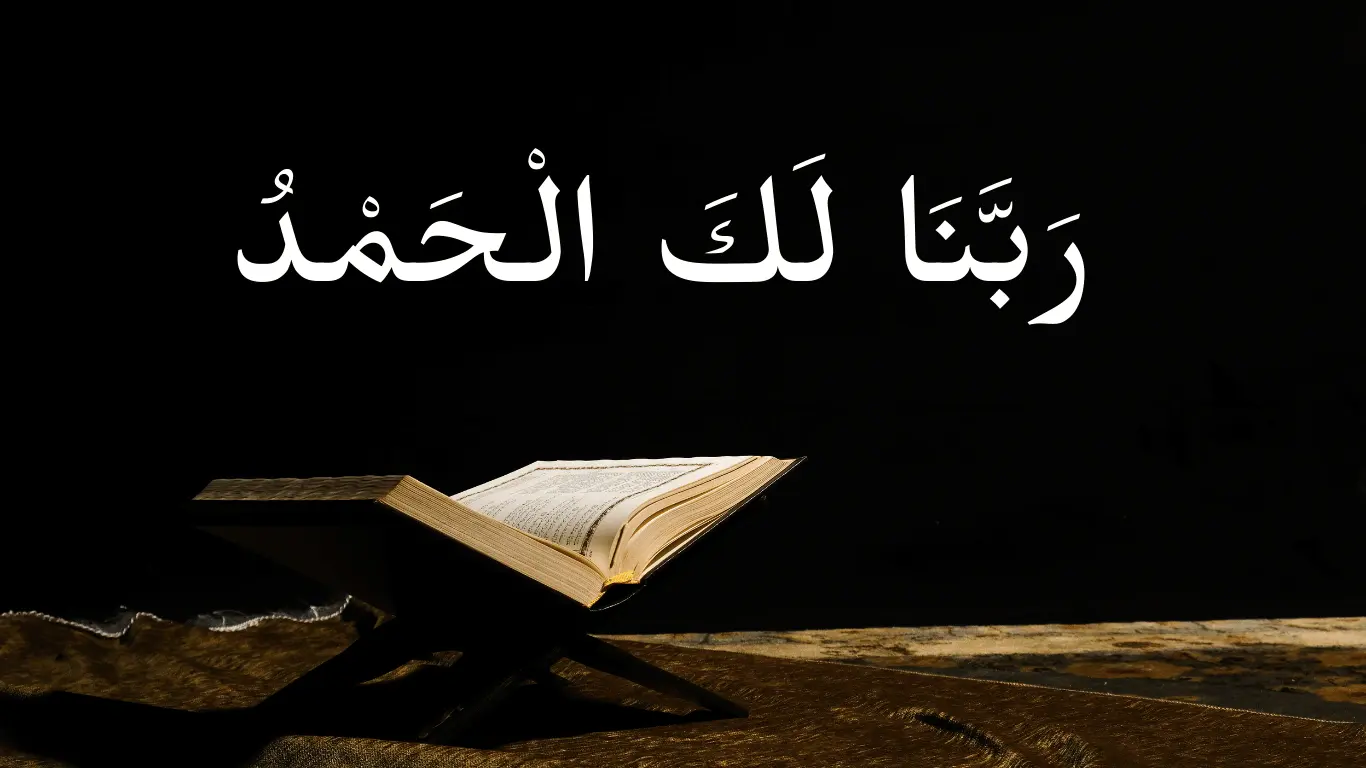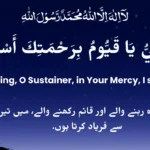In the heart of Islamic worship lies the beautiful phrase Rabbana Lakal Hamd (رَبَّنَا لَكَ الْحَمْدُ), which translates to, “Our Lord, to You belongs all praise.” This powerful declaration is a cornerstone of gratitude and devotion, recited during the prayer (Salah) immediately after rising from the bowing position (Ruku). It reflects the believer’s recognition of Allah’s boundless blessings and sovereignty.
In this article, we will explore the meaning of “Rabbana Lakal Hamd” alongside Quranic verses that emphasize gratitude, with full Arabic text, Urdu, and English translations. Let us delve into how this phrase can deepen our spiritual connection and fulfill our purpose as grateful servants.
The Meaning of rabbana lakal hamd
The phrase “Rabbana Lakal Hamd” is rich in meaning. It encompasses gratitude, praise, and recognition of Allah’s greatness. Each word holds significance:
- Rabbana (رَبَّنَا): “Our Lord” – acknowledging Allah as the Creator, Sustainer, and Provider.
- Lakal (لَكَ): “To You” – signifying that all praise is directed solely to Allah.
- Hamd (الْحَمْدُ): “Praise” – expressing gratitude and admiration for Allah’s infinite blessings.
This phrase reminds us to attribute all goodness, success, and blessings to Allah alone.
Quranic Verses on Gratitude
1. Surah Al-Baqarah (2:286)
Arabic:
سَمِعْنَا وَأَطَعْنَا غُفْرَانَكَ رَبَّنَا وَإِلَيْكَ الْمَصِيْرُ
Urdu: “
ہم نے سنا اور ہم نے اطاعت کی، اے ہمارے رب! ہمیں بخش دے، اور تیری طرف ہی لوٹ کر جانا ہے۔”
English: “We hear and we obey. [Grant us] Your forgiveness, our Lord. To You is the [final] destination.”
This verse exemplifies submission, trust, and gratitude toward Allah, resonating with the sentiments of “Rabbana Lakal Hamd.”
2. Surah Ibrahim (14:7)
Arabic:
وَإِذْ تَأَذَّنَ رَبُّكُمْ لَئِنْ شَكَرْتُمْ لَأَزِيدَنَّكُمْ وَلَئِنْ كَفَرْتُمْ إِنَّ عَذَابِي لَشَدِيْدٌ
Urdu:
“اور (یاد کرو) جب تمہارے پروردگار نے اعلان کر دیا تھا کہ اگر تم شکر ادا کرو گے تو میں تمہیں زیادہ دوں گا، اور اگر تم ناشکری کرو گے تو میرا عذاب سخت ہے۔”
English: “And [remember] when your Lord proclaimed, ‘If you are grateful, I will surely increase you [in favor]; but if you deny, indeed, My punishment is severe.'”
This verse highlights the immense blessings linked to gratitude, urging believers to consistently thank Allah for His favors.
3. Surah Al-Fatihah (1:2)
Arabic:
اَلْحَمْدُ لِلَّهِ رَبِّ الْعَالَمِيْنَ
Urdu: “
تمام تعریفیں اللہ ہی کے لیے ہیں جو سارے جہانوں کا رب ہے۔”
English: “[All] praise is [due] to Allah, Lord of the worlds.”
This opening verse of Surah Al-Fatihah encapsulates the essence of “Rabbana Lakal Hamd,” acknowledging Allah’s supreme authority and unending praise.
4. Surah Ad-Duha (93:11)
Arabic:
وَأَمَّا بِنِعْمَةِ رَبِّكَ فَحَدِٔثْ
Urdu: “
اور اپنے پروردگار کی نعمتوں کا ذکر کرتے رہو۔”
English: “But as for the favor of your Lord, report [it].”
This verse encourages believers to express gratitude by recognizing and speaking about Allah’s blessings.
rabbana lakal hamd in Salah
“Rabbana Lakal Hamd” holds a special place in Salah (prayer). It is recited after rising from Ruku, aligning the physical act of standing with the spiritual act of praising Allah. The Prophet Muhammad (peace be upon him) emphasized its importance, teaching various extensions such as:
“Rabbana lakal hamd, hamdan kathiran tayyiban mubarakan feeh”
Translation: “Our Lord, to You belongs all praise, abundant, pure, and blessed.”
This addition magnifies the praise and reflects the believer’s devotion.
Practical Ways to Cultivate Gratitude
- Daily Reflection: Spend a few moments each day acknowledging Allah’s blessings.
- Grateful Speech: Use phrases like “Alhamdulillah” and “Rabbana Lakal Hamd” in daily conversations.
- Charity: Share Allah’s blessings with others to show appreciation.
- Supplication: Incorporate Quranic supplications of gratitude in your prayers.
Conclusion
“rabbana lakal hamd” is more than a phrase; it’s a profound expression of gratitude that strengthens our connection with Allah. By reflecting on Quranic verses, incorporating gratitude into our lives, and practicing this declaration in Salah, we align ourselves with the essence of Islam—submission and thankfulness.
Let us embrace “Rabbana Lakal Hamd” not only in our prayers but also in our hearts and actions. May Allah make us among the grateful and shower us with His infinite blessings.
FAQs
It means “Our Lord, to You belongs all praise.” This phrase is recited in Salah to express gratitude and praise to Allah.
It is recited after rising from the bowing position (Ruku) in every unit of Salah.
You can practice gratitude by reflecting on Allah’s blessings, saying “Alhamdulillah,” giving charity, and living a life of humility and kindness.




